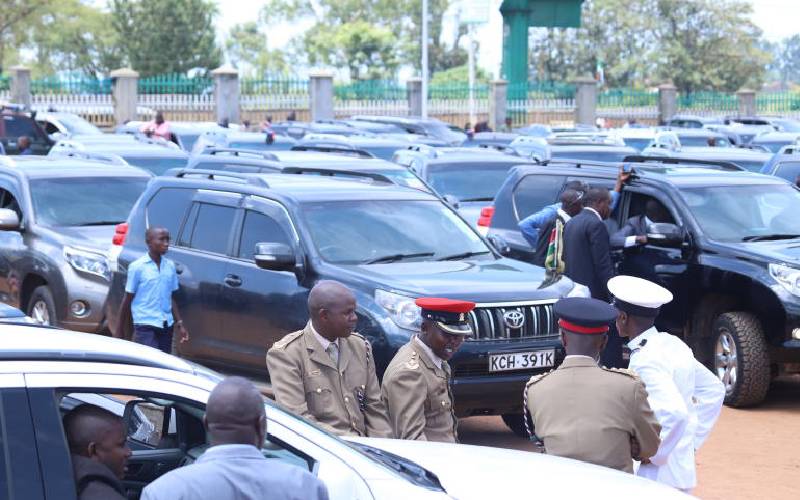×
The Standard e-Paper
Home To Bold Columnists

Fuel guzzlers used by officials who showed up at Bukhungu stadium during the Mashujaa Day celebrations in Kakamega County. [Denish Ochieng, Standard]
Whether by design or accident, the Government appears to be slowly shifting to policies that are friendly to the environment.